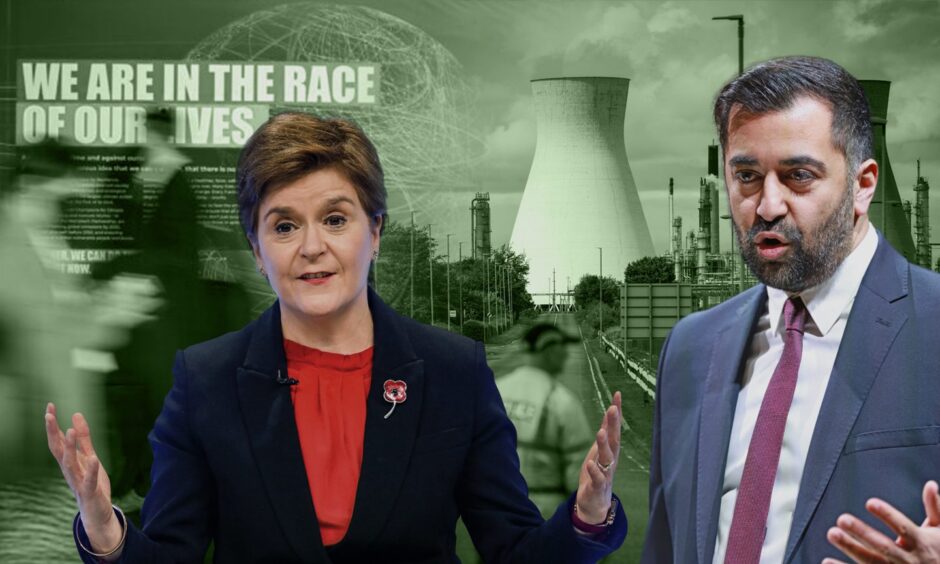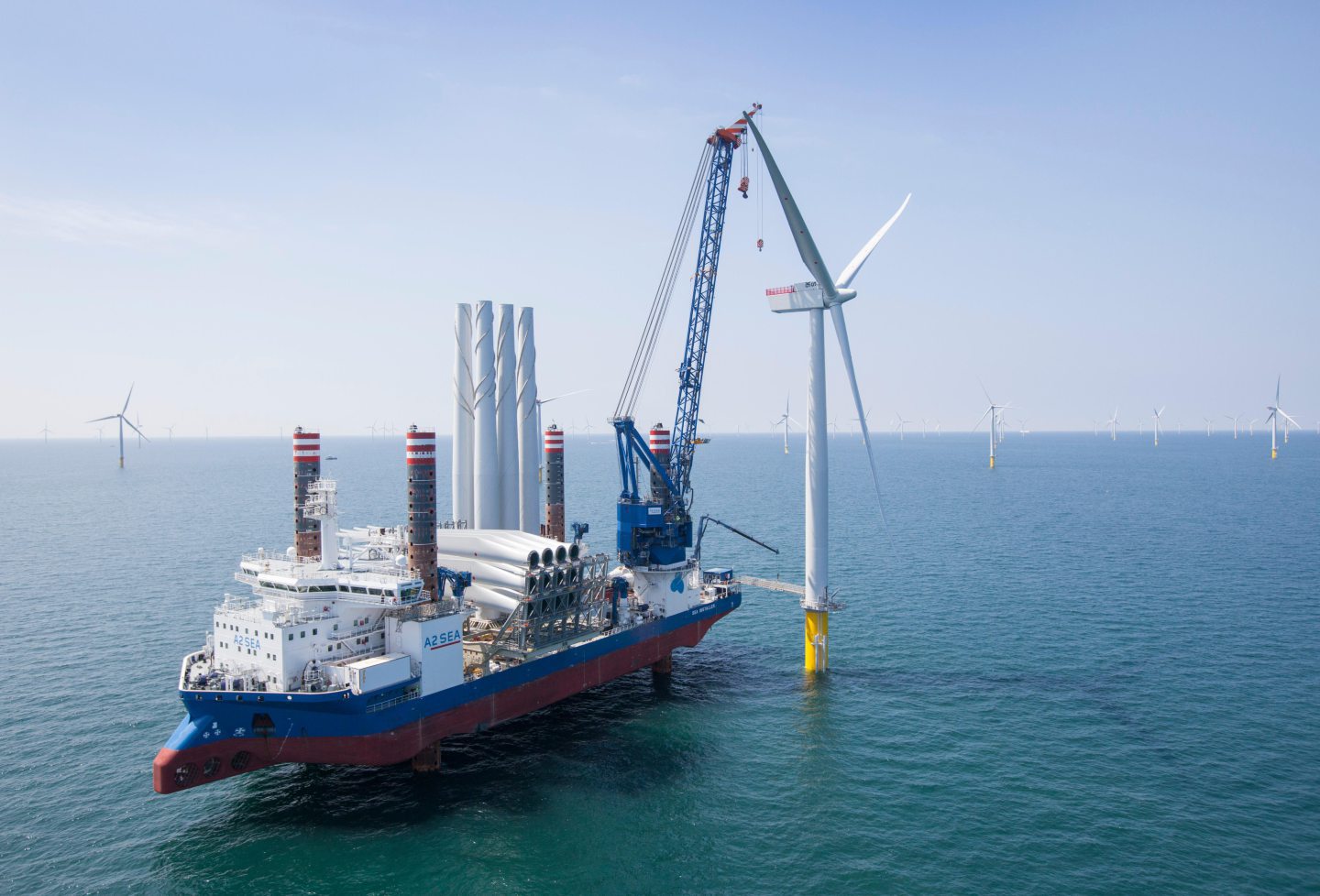
North East energy transition leaders say the Scottish Government’s decision to walk away from its 2030 climate target is an opportunity for a much needed “reset”, while others say it is time for a “reality check”.
Speaking in Holyrood yesterday, net zero cabinet secretary Màiri McAllan quoted lines from a recent Climate Change Committee (CCC) to justify the rolling back of Scotland’s ambitious plans reduce emissions by 75% by 2030.
The report from the CCC said the level of emissions reductions needed for Scotland to reach its 2030 climate change targets is now “beyond what is credible” to be achieved.
Ms McAllan told MSPs: “Quite rightly, as with the UK government, the CCC challenges us to go further and that’s exactly what we will do today as I’m announcing a new package of climate action measures which we will deliver with partners to support Scotland’s transition to net zero.”
Ms McAllan conceded the 2030 target is now “out of reach” and said the SNP-Greens coalition will bring forward new legislation to ensure climate change targets “better reflect the reality of long-term climate policymaking”.
This will also see the Scottish Government move away from legally-binding annual targets – which it has missed for eight out of 12 years.
But she stressed Scotland’s target to reach net zero by 2045 – five years earlier than the UK – will remain.
The suite of measures announced today relate to the abundance of electric vehicle charging ports in the country, the rollout of zero emission vans and other vehicles, shifts in agriculture policy and moves to roll out low carbon heating in Scotland.
Time for a ‘reset’ on climate plans
Director of Aberdeen University’s centre for energy transition Professor John Underhill told Energy Voice there was now an opportunity for a “reset” of Scotland’s climate strategy.
“I think this is the time to have a reset and make sure that there is a complete and holistic reappraisal of how we do get to net zero by 2045 in Scotland,” Professor Underhill said.
“I think the challenge for the Scottish Government is to make sure that there is an appropriate convening of, and inclusion of, all the elements within this.
“Industrial emissions, buildings, transport, oil and gas are all part of the narrative so that we get a clear and joined up plan for how we reach those challenging targets.”
Professor Underhill said it is important for the Scottish and UK governments to work towards greater collaboration and cooperation, rather than the “political arms race” seen in the lead up to COP26 in Glasgow.
“There was almost an inflation of the targets going on in the political arena around the time of COP26,” he said.
“With the drifting away and the continuing missed targets, it was inevitable that sooner or later someone would have to come out and say we need to do something differently.”
Climate decision “inevitable”
Meanwhile, Robert Gordon University Energy Transition Institute director Professor Paul de Leeuw said the Scottish Government’s decision was “deeply disappointing” but “inevitable”.
“Although Scotland has made good progress in terms of decarbonising its electricity system, major challenges remain with decarbonising the Scottish transport, heat, building and industrial sectors,” he said.
“While today’s announcement signals a new course to 2045, world class climate emergency leadership requires more than good intentions and setting ambitious goals.
“It needs direction, a sense of urgency, accountability for delivery and transparency on progress, all underpinned by credible, coordinated and actionable transition plans.”
Professor de Leeuw said the Scottish Government now has the opportunity to “turn words into real actions” and “urgently re-establish Scotland’s reputation as a global leader in the race to net zero”.
Union says time for ‘reality check’
A core component of the Scottish Government’s messaging around climate change has been the need for a ‘just transition‘ for oil and gas workers in the North East.
Reacting to the change in climate policy direction yesterday, the Unite Union said the Scottish government’s greenhouse emissions and green jobs policies need a “reality check”.
Unite general secretary Sharon Graham said the decision to scrap the 2030 emissions target is the “latest setback in a growing list of failed green policies”.
“The repeated inability to meet its own emissions and green jobs targets is inextricably linked. Government ministers need a reality check,” Ms Graham said.
“The fact is you can’t meet emissions targets unless there is a coherent energy strategy in place and government ministers at Holyrood and Westminster have abysmally failed to deliver that.”
Risk to investor confidence
The sustainable investment sector also reacted with dismay, with UK Sustainable Investment and Finance Association chief executive officer James Alexander warning of the risk to investor confidence.
“Like the rest of the UK, Scotland needs ambitious and consistent policy signals to attract the scale of private investment needed to reach net-zero,” Mr Alexander said.
“Failing to meet and then scrapping climate targets risks damaging investor confidence.
“At a time when global temperatures are breaking record after record, policymakers must understand the power of the signals they send.”
While the Scottish government’s decision to scrap the 2030 targets was met with widespread disappointment by environmental campaigners and derision from political adversaries, it was welcomed by some in the agricultural sector.
The National Farmers Union in Scotland welcomed the government’s “change in direction”.
“We now need to focus exclusively on net zero but not necessarily be legally bound by deadlines,” NFU Scotland vice-president Alasdair Macnab told the BBC.
“The emphasis must shift to ‘how’ rather than being a hostage to ‘when’.”
Recommended for you


 © Supplied by PA
© Supplied by PA © Image: University of Aberdeen
© Image: University of Aberdeen © Supplied by RGU
© Supplied by RGU © Supplied by Shutterstock
© Supplied by Shutterstock © Supplied by Pinsent Masons
© Supplied by Pinsent Masons